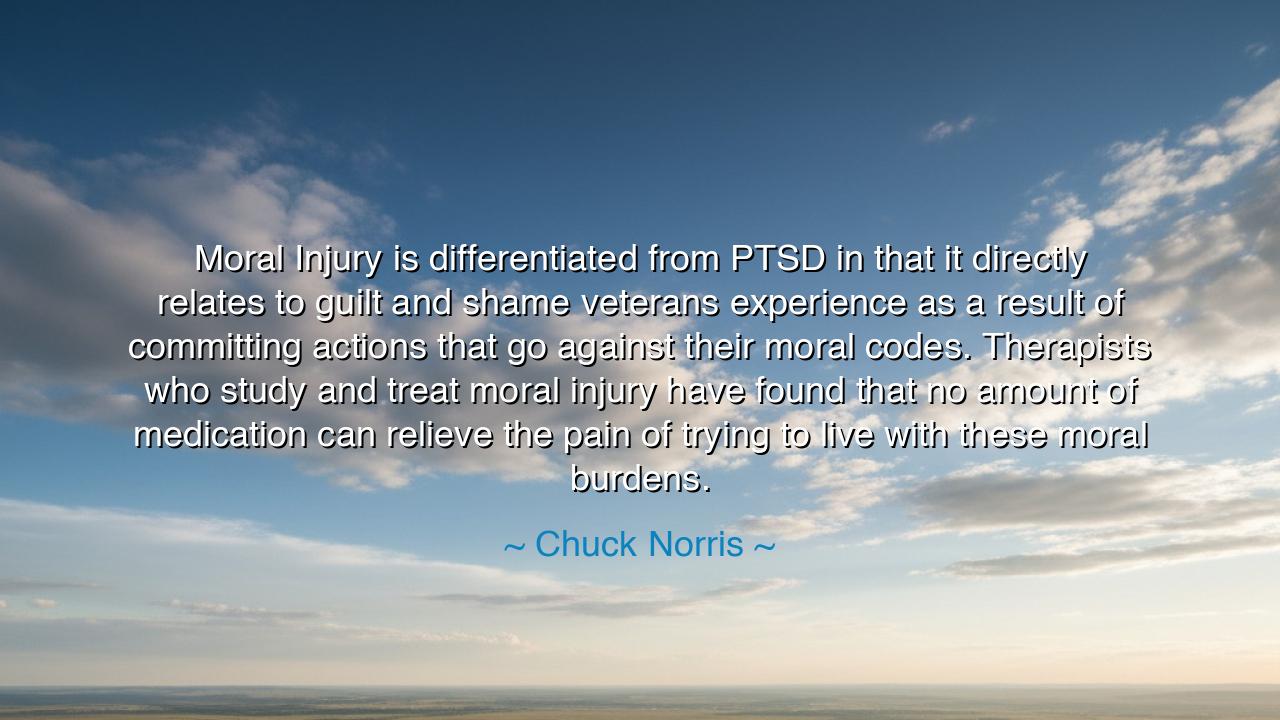
Moral Injury is differentiated from PTSD in that it directly
Moral Injury is differentiated from PTSD in that it directly relates to guilt and shame veterans experience as a result of committing actions that go against their moral codes. Therapists who study and treat moral injury have found that no amount of medication can relieve the pain of trying to live with these moral burdens.






Host: The room feels heavy with reflection, a deep understanding settling over the space as the soft evening light fades into twilight. Outside, the world continues its usual rhythm, but inside, the conversation feels serious, as though it's about to touch on the deep emotional struggles faced by many who serve in the military. Jeeny sits at the table, her fingers lightly tracing the rim of her cup, her expression somber. Jack stands near the window, arms crossed, looking out at the street below.
Jeeny: (her voice gentle, yet filled with empathy) “You ever think about how the emotional burdens people carry—especially veterans—can sometimes be invisible, weighing on them in ways that no one else can see? How certain experiences, actions, or choices can lead to deep feelings of guilt or shame that seem impossible to shake?”
Jack: (glancing over at her, his voice dry, but intrigued) “Guilt and shame, especially for veterans? Yeah, it’s tough how trauma isn’t just about what happens to you physically or even mentally, but what happens to your sense of self. What made you think about it?”
Jeeny: (nodding slowly, a small sigh forming as she shares her thought) “I was thinking about something Chuck Norris said: ‘Moral Injury is differentiated from PTSD in that it directly relates to guilt and shame veterans experience as a result of committing actions that go against their moral codes. Therapists who study and treat moral injury have found that no amount of medication can relieve the pain of trying to live with these moral burdens.’ It made me reflect on how deep moral injury can go, how it’s not just about the trauma—it’s about the emotional toll that happens when someone feels they’ve violated their own moral compass.”
Jack: (pauses, considering her words carefully) “So, he’s saying that moral injury isn’t just another form of PTSD—it’s about guilt and shame for actions that conflict with someone’s personal values and beliefs? And even though PTSD is treated with medication, moral injury is something deeper, something that can’t be erased with pills—it’s about reconciling those internal conflicts?”
Jeeny: (smiling softly, her eyes steady as she explains further) “Exactly. Norris’s point is that moral injury goes beyond the trauma itself. It's about the psychological burden of knowing you’ve done something that violates your moral code, and that sense of guilt can be even more painful than the physical injuries. No matter how much therapy or medication someone gets, it’s the emotional burden of those actions, of living with that guilt, that remains.”
Host: Jeeny’s words seem to settle in the room, creating a shift in the conversation about the emotional pain that accompanies moral injury and the difficulty of reconciling personal values with actions taken in extreme circumstances. Jack stands still, his expression softening as he processes the deeper message behind Norris’ statement. The world outside continues its rhythm, but inside, the conversation feels rooted in a more profound understanding of the invisible wounds many veterans face.
Jack: (his voice quieter now, almost reflective) “I see what he means. It’s not just the trauma or the danger—it’s about the emotional aftermath of actions that go against what you believe in, and how you carry that with you. It’s not something that can be treated with medication or quick fixes; it’s a wound that takes time and emotional work to heal.”
Jeeny: (nodding slowly, her voice calm, yet filled with quiet strength) “Exactly. It’s a reminder that emotional and psychological pain is just as real and significant as physical wounds. And when that pain stems from guilt and shame, it’s something that’s harder to address because it’s tied to personal values, to who you are deep down.”
Jack: (pauses, a small smile forming on his face as the idea sinks in) “It’s liberating, isn’t it? To realize that moral injury isn’t just something that can be fixed with medicine—it’s about understanding the emotional toll of guilt and shame and offering real support, compassion, and understanding to those who are suffering.”
Jeeny: (smiling warmly, her voice gentle, yet filled with wisdom) “Exactly. We need to approach this with more empathy—recognizing that healing moral injury isn’t just about treating the symptoms, but helping someone navigate and reconcile their inner conflict. It’s about giving them the space to forgive themselves and find peace.”
Host: The room feels lighter now, as though the conversation has shifted into a deeper understanding of the invisible wounds that many veterans carry with them. Jack turns from the window, his posture more relaxed, his thoughts clearly reflecting on the importance of empathy and emotional healing. Jeeny watches him, content in the realization that true healing comes from understanding the emotional burdens people face and helping them find peace. The world outside continues its rhythm, but inside, there’s a shared understanding that the pain of moral injury can’t be erased—it must be acknowledged and worked through with compassion and support.






AAdministratorAdministrator
Welcome, honored guests. Please leave a comment, we will respond soon